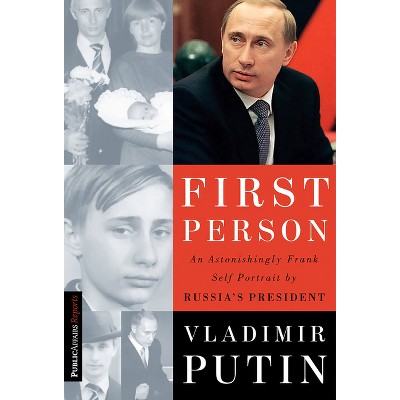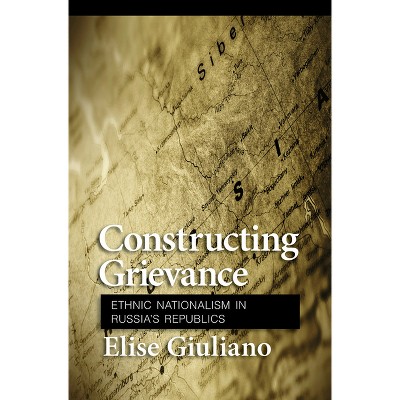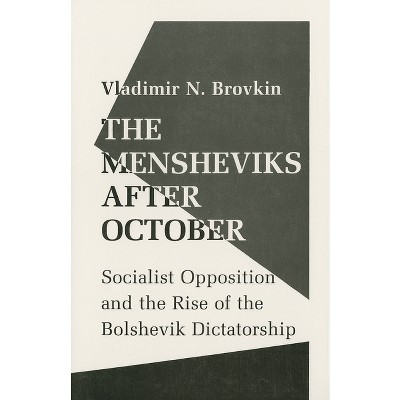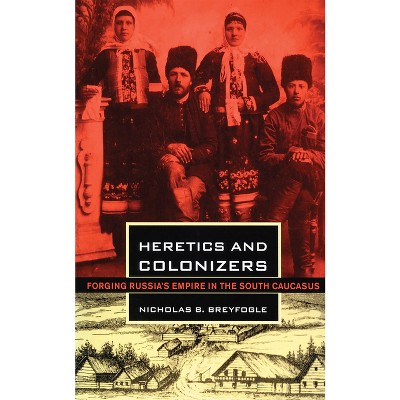Sponsored

Gleaning for Communism - by Xenia A Cherkaev (Paperback)
In Stock
Sponsored
About this item
Highlights
- Gleaning for Communism is a historical ethnography of the property regime upon which Soviet legal scholars legislated a large modern state as a household, with guaranteed rights to a commons of socialist property, rather than private possessions.
- About the Author: Xenia Cherkaev is Senior Lecturer in the Department of History at the Higher School of Economics University, St. Petersburg, Russia.
- 210 Pages
- History, Russia & the Former Soviet Union
Description
About the Book
"This book tells a radically new story of how the Soviet system functioned and why it failed. Mediating between today's popular narratives of "Soviet times" and the ownership categories of Soviet civil law, it shows the Soviet Union as an explicitly illiberal modern project, reliant in theory and fact on collectivist ethics"--Book Synopsis
Gleaning for Communism is a historical ethnography of the property regime upon which Soviet legal scholars legislated a large modern state as a household, with guaranteed rights to a commons of socialist property, rather than private possessions. Starting with former Leningrad workers' everyday stories about smuggling industrial scrap home over factory fences, Xenia Cherkaev traces collectivist ethical logic that was central to this socialist household economy, in theory and practice: from its Stalin-era inception, through Khrushchev's major foregrounding of communist ethics, to Gorbachev's perestroika, which unfurled its grounding tension between the interests of any given collective and of the socialist household economy itself.
A story of how the socialist household economy functioned, how it collapsed, and how it was remembered, this book is haunted throughout by a spectral image of the totalitarian state, whose jealous political control over the economy leads it to trample over all that which ought to be private. Underlying this image, and the neoliberal state phobia it justified, is the question of how individual interests ought to relate to the public good in a large modern society, which, it is assumed, cannot possibly function by the non-private logics of householding. This book tells the story of a large modern society that did.
Review Quotes
Gleaning for Communism, with its atmosphere of sincerity and curiosity, challenges readers to debate with the author and themselves from the first page to the last. It is one of those diamond-like books whose flaws are as interesting as its sparkling facets.
-- "Slavic Review"Cherkaev has written a historical ethnography of socialist property that encourages her readers to radically rethink the Soviet economy. It has all the potential to fundamentally reshape our understanding of the Soviet economy and notions of property/ownership by putting the term khoziaistvo (household) center stage and is, therefore, a more than welcome intervention into the recent economic turn in Soviet studies.
-- "Kritika: Explorations in Russian and Eurasian History"An exciting retelling of Soviet history, centered around customary use-rights and socialist ethics in actually existing socialism.
-- "Focaal"Gleaning for Communism is, I hope, the first book of many to revisit the question of property and ethics, and how their interrelationship structures social relations. This book should inspire research on the material history of consumerism and historical and anthropological work on housing and Soviet welfare provision more generally.
-- "Europe-Asia Studies"Cherkaev's work brings us closer to understanding the phenomenon of the Soviet person: his agency and role in the functioning of the state. By raising the issue of attitudes to personal and socialist property, it opens up a whole range of problems related to the internal moral logic of the individual in the late Soviet Union and contemporary Russia.
-- "Laboratorium"In her recent book, Gleaning for Communism: The Soviet Socialist Household in Theory and Practice, the American anthropologist Xenia A. Cherkaev challenges the ideological constraints that shape the construction of knowledge on economic relations in non-democratic societies - much like American Sovietologists did in the 1970s.
-- "The Soviet and Post-Soviet Review"This book is to be praised, primarily, for granting Soviet citizens subjectivity without making them liberal subjects. It is a great contribution to the conversation about alternative modernity and a thought-provoking, engaging and clever reading.
-- "H-Soz-Kult"Cherkaev makes an important contribution to the history of ideas and intellectual history as she consistently traces the emergence, development, transformation, and decline of the concept of "socialist property" ("socialist economy") from the early post-revolutionary years to the collapse of the Soviet Union.
-- "Antropologicheskij forum"Cherkaev has fashioned a historical ethnography of this property regime which is both theoretically complex and convincing. Rich in emic detail, it captures the essence of how the socialist household functioned, how it collapsed, and how it was remembered.
-- "Ab Imperio"Cherkaev's exploration of the Soviet period is not only fulfilling on its own terms, but also provides an explanatory framework for a wide range of common practices that remain long into the post-Soviet era.
-- "Russian Review"About the Author
Xenia Cherkaev is Senior Lecturer in the Department of History at the Higher School of Economics University, St. Petersburg, Russia. She has published articles in The American Historical Review; Cahiers du monde Russe; Environmental Humanities; and Bulletin of the Atomic Scientists.
Shipping details
Return details
Frequently bought together











